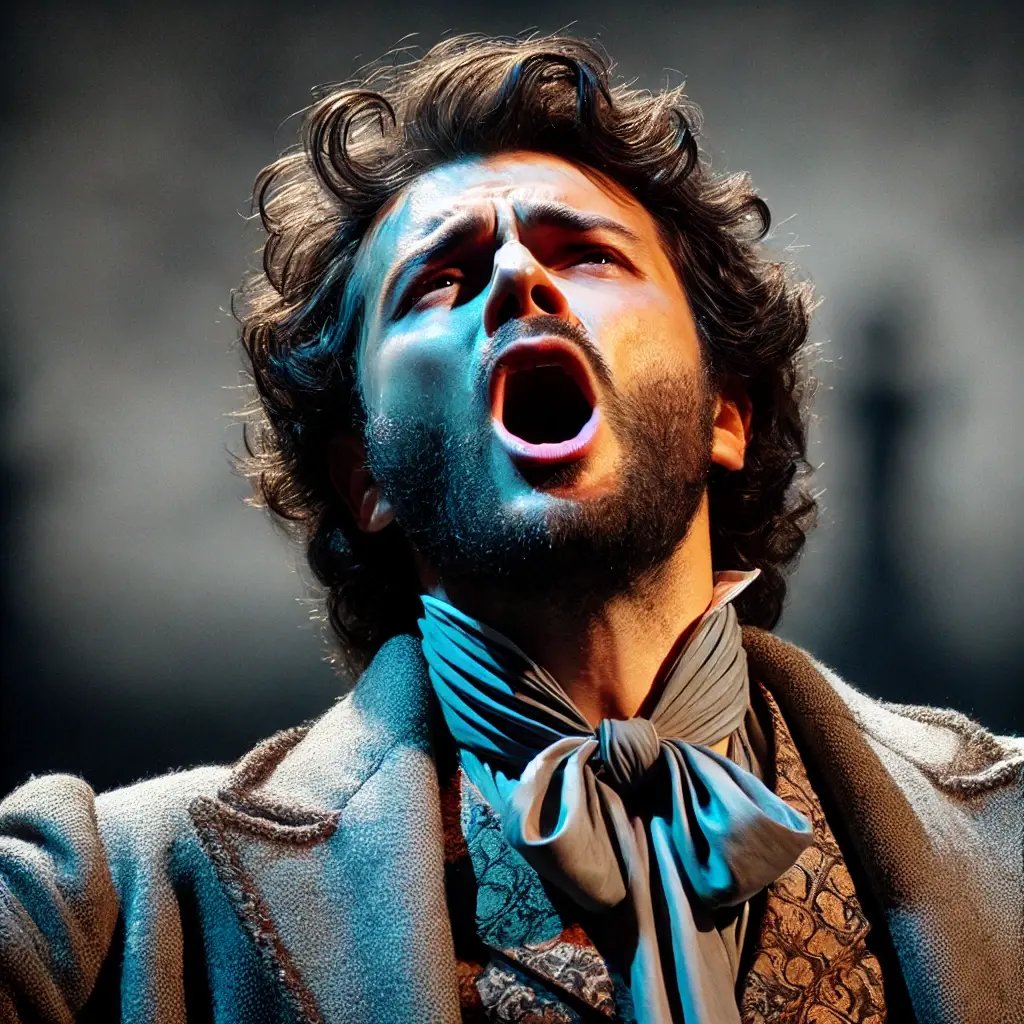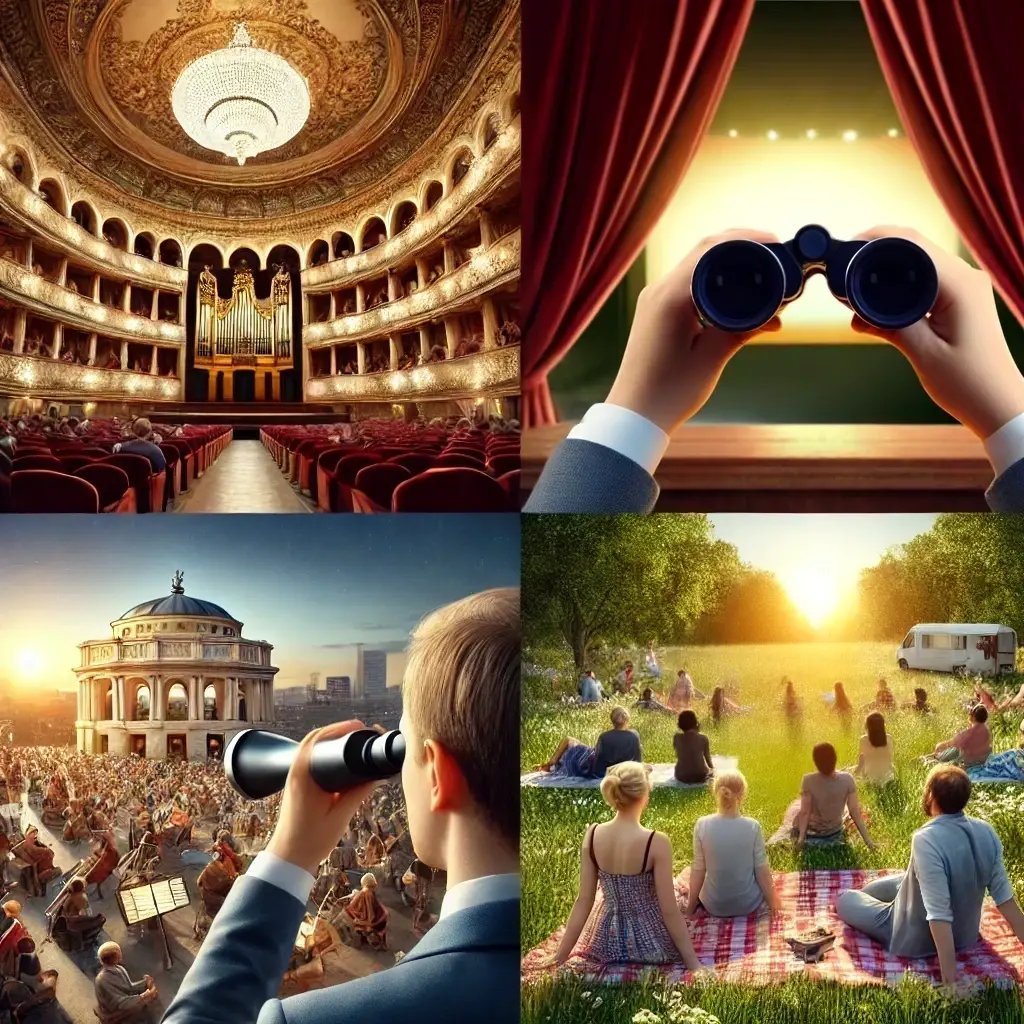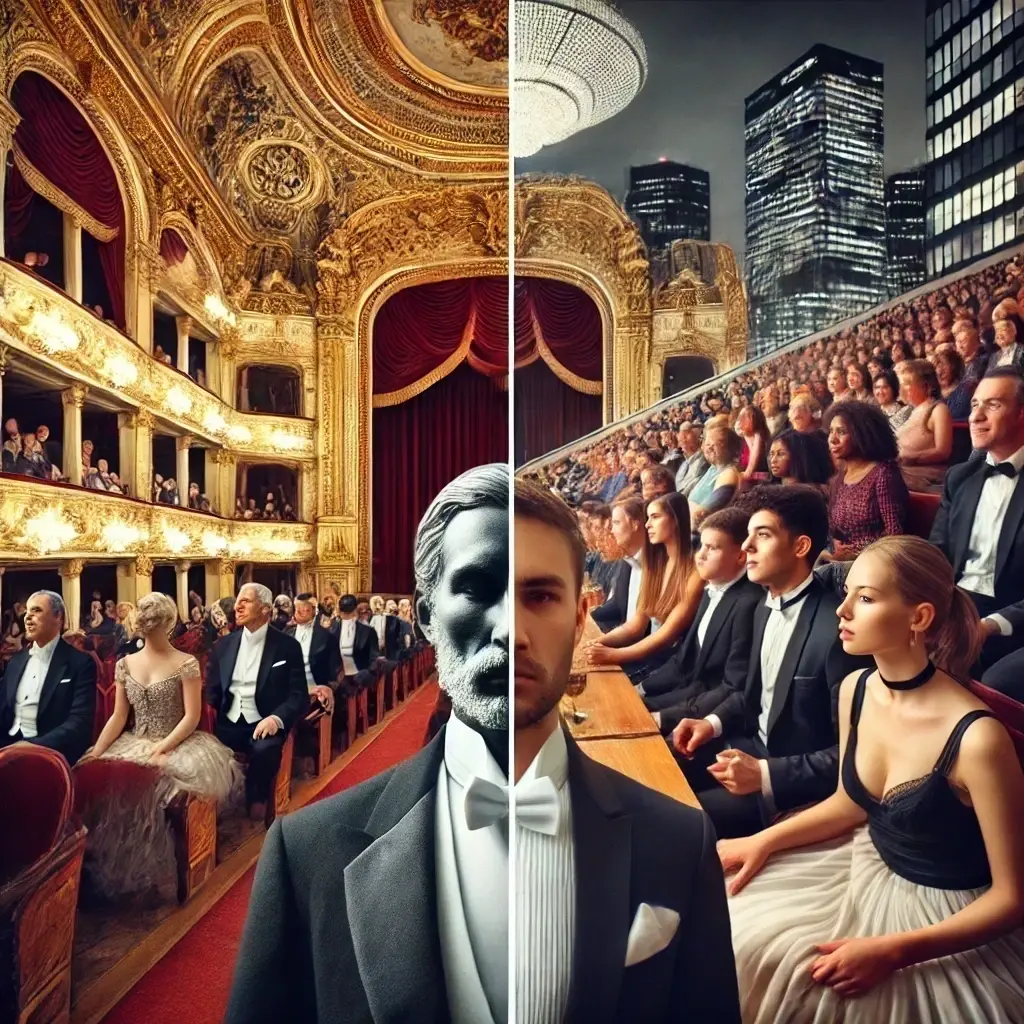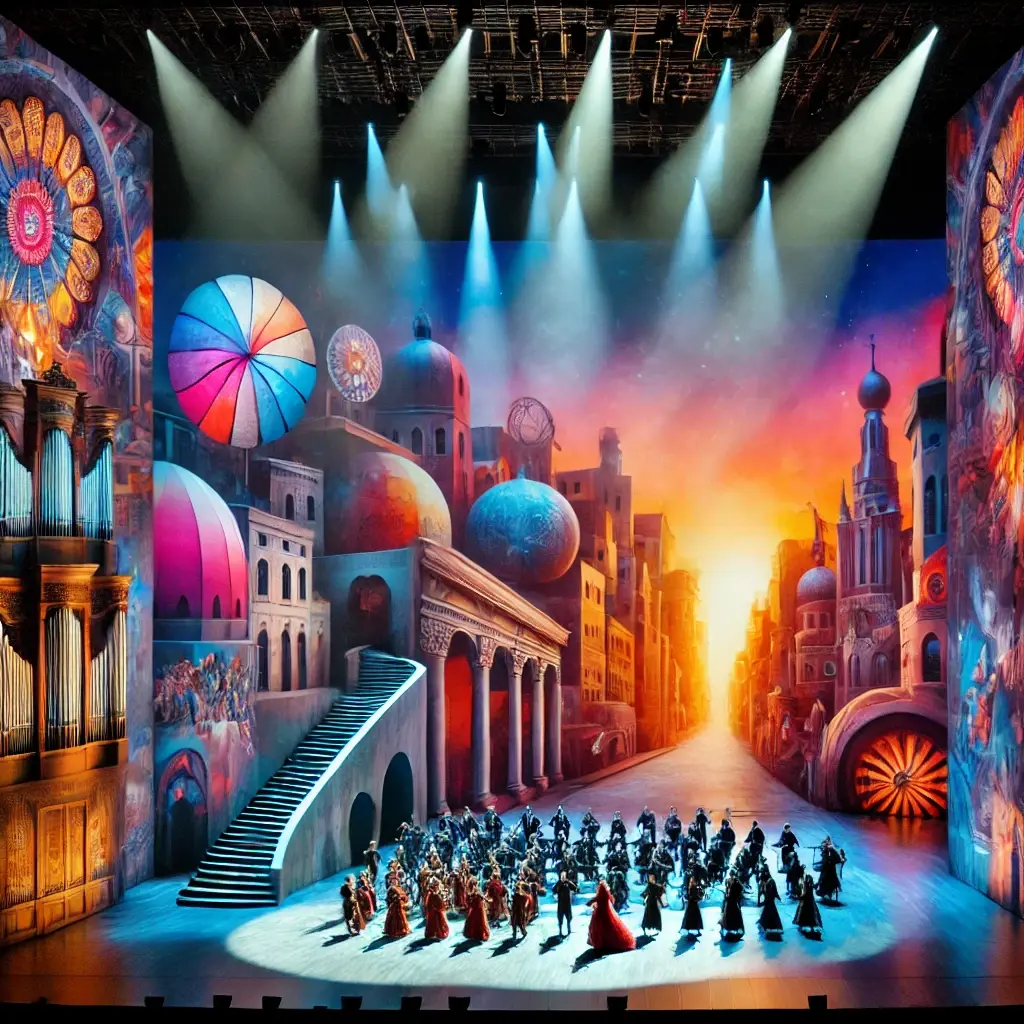What is Opera?
Discover the Magic of Opera

What Is Opera? The Art Form That Combines Music, Story, and Emotion
Opera is one of the most powerful and enduring art forms ever created—where music, drama, and design unite to tell stories that move us. Often called the Queen of the Arts, opera blends the grandeur of orchestral music with the intimacy of human emotion.
Originating in Italy in the late 1500s, opera quickly spread across Europe and beyond, captivating audiences with tales of love, loss, courage, and joy. Even centuries later, opera continues to evolve, proving that great stories sung through music can transcend time, language, and culture.
A Brief History of Opera: From Italy to the Modern Stage
%20The%20Early%20Days%20(1600s)_%20A%20painting-style%20scene%20of%20an%20el.webp?width=525&height=300&name=DALL%C2%B7E%202024-10-06%2011.40.22%20-%20A%20visually%20engaging%20illustration%20representing%20the%20four%20main%20eras%20of%20opera%20without%20any%20text_%201)%20The%20Early%20Days%20(1600s)_%20A%20painting-style%20scene%20of%20an%20el.webp)
Opera has a rich and fascinating history that spans over 400 years. From its beginnings in Renaissance Italy to the grand opera houses of the 19th century and the contemporary productions we see today, opera has continuously evolved while staying true to its roots.
The Birth of Opera (1600s)
The earliest operas were performed in Italy and were closely linked to the courts of wealthy patrons, blending poetry, music, and theater.. The works of composers like Monteverdi laid the foundation for what would become one of Western culture's most respected and influential art forms.
Baroque and Classical Opera (1700s-1800s)
Composers such as George Frideric Handel and Wolfgang Amadeus Mozart brought elegance and structure to opera. Mozart’s The Marriage of Figaro and The Magic Flute remain beloved for their wit, warmth, and unforgettable melodies.
The Golden Age (1800s)
Opera reached new heights of emotion and theatricality in the 19th century. Giuseppe Verdi filled his works with passion and humanity (La Traviata, Aida), while Richard Wagner expanded the scale and symbolism of opera with epic cycles like The Ring.
Modern Opera (1900s-Today)
The 20th and 21st centuries have reimagined what opera can be. Composers such as Benjamin Britten, Philip Glass, and Jeanine Tesori explore modern themes, technology, and diverse voices—proving that opera remains a living, breathing art form.

How to Experience Opera
You don’t have to be an expert to enjoy opera. It’s an experience that speaks to everyone, regardless of your musical knowledge or background. Here are a few tips for getting the most out of your opera experience:
-
Attend a Live Performance: There’s nothing quite like the energy of a live opera performance. Combining live vocals, orchestral music, stunning costumes, and sets creates an unforgettable experience. Most opera houses offer subtitles (or surtitles) in multiple languages, so you can easily follow along with the story, even if it's sung in another language.
-
Start with the Classics: If you're new to opera, try starting with one of the more accessible, well-known operas. Carmen by Bizet, La Bohème by Puccini, or The Barber of Seville by Rossini are great options. They have engaging plots and memorable music and are performed regularly worldwide.
-
Listen to Recordings: If you’re not ready for a live performance, many opera productions are available online or through streaming services, including performances in movie theaters with The Met: Live in HD. Listening to a recording can help you familiarize yourself with the music and story before attending a performance.
-
Read the Synopsis: Before attending an opera, take a few minutes to read a summary of the story. This can enhance your understanding and appreciation of the performance.
Debunking Myths About Opera
Opera is often misunderstood. It’s time to debunk some of the most common myths:
-
"Opera is only for the wealthy." This is one of the biggest misconceptions. While opera was once primarily performed for royalty and the elite, it has always been an art form for the people. Today, opera is accessible to all, with many affordable or even free performances available. Opera houses and companies work hard to reach diverse audiences, offering student discounts, community outreach programs, and performances in non-traditional venues.
-
"Opera is stuffy and boring." On the contrary, opera is full of passion, drama, and excitement! The stories are often larger-than-life, full of action, love, heartbreak, and humor. Opera also offers a wide variety of genres—from light-hearted comedies to intense tragedies—so there's something for every taste. Modern productions often bring fresh perspectives, combining traditional elements with contemporary innovations to keep the art form dynamic and engaging.
-
"You must understand Italian (or another language) to enjoy opera." Opera is often performed in its original language, Italian, French, German, or another language. However, most opera houses provide translations (called surtitles) during performances, making it easy to follow the story. Moreover, the emotional power of music and performance transcends language barriers, allowing audiences to connect with the characters and story on a deeper, emotional level.
-
"Opera singers just scream or shout." Opera singers are highly trained vocalists who use specific techniques to project their voices over a full orchestra without microphones. This powerful singing is not shouting but a highly skilled art form that requires years of practice and dedication. The result is music that can move and inspire, creating an intense emotional connection with the audience.


Why Opera Matters Today
Opera is not just a relic of the past—it is a living, breathing art form that continues to evolve and inspire new generations. It combines the best of music, theater, and visual arts into one unique experience, exploring themes that are as relevant today as they were centuries ago. Opera allows us to explore the depths of human emotion and experience, making it a universal language that speaks to everyone.
Whether you want to discover opera for the first time or deepen your appreciation of this incredible art form, Friends of the Opera is here to guide and inspire you. Explore the rich history, enjoy the music, and become a part of the vibrant world of opera!
Frequently Asked Questions (FAQs) About Opera
What makes opera different from musical theatre?
While both opera and musical theatre combine music and storytelling, opera is almost entirely sung from beginning to end. Every word is carried by the voice and orchestra rather than spoken dialogue. The singers perform without microphones, relying on years of classical training to project naturally across the theater. In contrast, musicals use amplified sound, modern vocal styles, and spoken scenes to advance the plot. This makes opera a more continuous and immersive musical experience—one where melody and emotion never stop moving the story forward.
Do I need to understand Italian or German to enjoy opera?
Not at all. Most operas are performed in their original language—often Italian, French, or German—but nearly all modern productions include translations on screens or above the stage. Even without knowing the words, the music, acting, and staging make the meaning clear through emotional cues and musical motifs. Opera was designed to express feeling through sound, so audiences can connect with the story instinctively. Many newcomers are surprised at how easily they can follow the drama once they relax and let the music guide them.
What are good operas for beginners?
For newcomers, starting with approachable classics can make all the difference. Operas like La Bohème by Puccini, Carmen by Bizet, and The Magic Flute by Mozart feature unforgettable melodies, vivid characters, and clear storytelling that instantly draw audiences in. These works blend humor, romance, and tragedy in ways that remain relatable today. Many opera companies program these titles regularly because they resonate equally with first-time listeners and seasoned fans. Experiencing one of these operas live—or even through a high-quality broadcast—is often the beginning of a lifelong appreciation for the art form.
How can I watch opera without going to an opera house?
Opera is more accessible today than ever before. Audiences can experience world-class performances through programs like The Met: Live in HD, which streams live productions to movie theaters around the globe. Many opera companies also offer digital subscriptions, on-demand video libraries, and free online performances that bring the stage directly to your home. Streaming an opera before seeing it live is a great way to become familiar with the music and story. These modern viewing options ensure that anyone—anywhere—can be part of the operatic experience.
Why should I see opera live at least once?
Nothing compares to the sound of a live human voice soaring above a full orchestra without any amplification. A live opera performance immerses you in music, theater, and design all at once—creating an emotional intensity that recordings simply can’t capture. The scale of the sets, the artistry of the singers, and the energy of the audience combine to make each performance a one-of-a-kind event. Even those who attend reluctantly often find themselves moved or astonished by the sheer power of the experience. Seeing opera live isn’t just entertainment—it’s a reminder of what the human voice can achieve.
